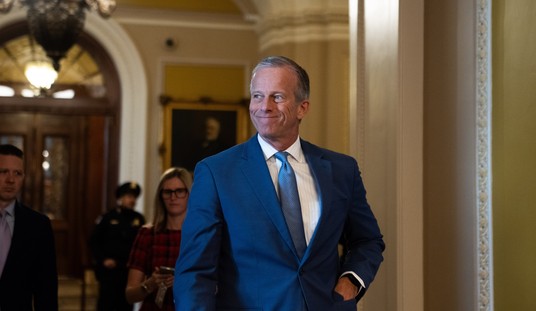Members of Congress return to Washington this week $4,100 richer. During their three-week vacation, the annual cost-of-living adjustment kicked in, bringing the salary of a congressman to $169,300.
At a time when partisan bickering has dragged congressional approval ratings to just 25 percent, Democrats and Republican can agree on one thing: a pay raise for poor performance. Any American workers who had such dismal reviews would be fired. But in the case of lawmakers in Washington, it’s business as usual.
Support for the pay raise was among the most bipartisan issues Congress grappled with last year. An attempt to block the automatic cost-of-living adjustment was defeated in June on a 244-to-181 vote; 99 Republicans joined 145 Democrats to back the 2.5 percent raise.
What came as a surprise, however, was that three of the top four House Republican leaders supported the pay hike; only Rep. Thaddeus McCotter, chairman of the House Republican Policy Committee, voted against it. The party that claims to protect taxpayers sent the message that members of Congress were looking out for themselves rather than the men and women they represent.
Supporters of the pay increase argue that it’s a cost-of-living adjustment no different from what other government workers receive each year. They also note that many lawmakers aren’t wealthy and some can’t even afford an apartment in Washington on their six-figure salary.
One member we’re supposed to pity is Rep. Tim Walberg, a freshman Republican from Michigan who sleeps in his office to save money. But based on his vote against the pay raise, it doesn’t appear Walberg minds his living situation much.
Recommended
“Michigan is in an economic recession and its leaders need to be making sacrifices to bring the Wolverine State back to prosperity,” said Walberg spokesman Matt Lahr. “The congressman has been outspoken about making tax relief permanent and felt it would be inconsistent to vote to increase his own pay.”
With Democrats showing little sign of extending President Bush’s tax cuts, it might be a while before Walberg fulfills his goal of making tax relief permanent. He might be sleeping in his office for years to come.
Another critic, Rep. Jeff Flake (R-Ariz.), doesn’t believe it’s appropriate for lawmakers to receive pay raises while the federal government is running a deficit. That’s a view shared by Rep. Jim Matheson (D-Utah), who has criticized the process for years.
Matheson was joined by 82 other Democrats in voting against the pay hike, about half of whom were politically savvy freshmen lawmakers.
Of course, not all members of Congress share the sentiment that voters express in public-opinion surveys. Some congressmen seemed very pleased with their performance judging from the reams of press releases boasting of pork-barrel projects in the wake of the mammoth $555 billion omnibus spending bill. With nearly 10,000 earmarks, lawmakers had plenty to crow about.
And let’s not forget another accomplishment: The House took a record number of votes, 1,186 in all. But only a fraction -- 180, to be precise -- became law. Those who called the Republican-led Congress a “do-nothing Congress” in 2006 might want to nickname this one a “post-office Congress” for all of the public laws passed to name buildings.
Members of Congress failed to tackle some of the most important issues facing America, such as health care and taxes. When they did confront them, they chose to punt the problem rather than find a long-term solution. For example, the State Children’s Health Insurance Program will now expire in March 2009, and Congress put a one-year freeze on growth of the Alternative Minimum Tax.
This performance is hardly worth a $4,100 pay raise. Taxpayers should be outraged.























Join the conversation as a VIP Member